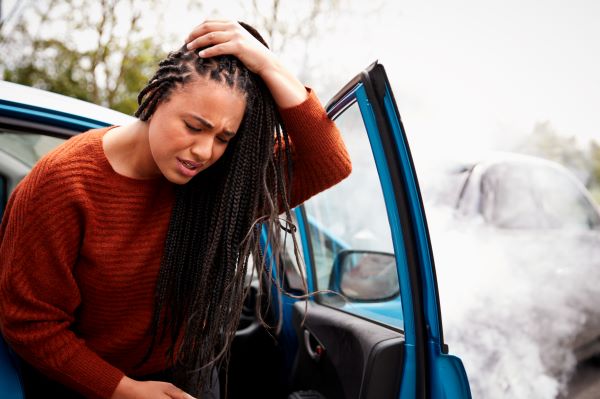Florida is a no-fault state for car accidents, meaning that drivers first file a personal injury protection (PIP) claim with their insurance. If your medical bills exceed the PIP coverage limit, you can file a claim against the driver’s liability insurance.
Bodily injury liability insurance isn’t mandatory for non-commercial drivers in Florida. So, what happens if you’re hit by an uninsured driver or someone without adequate coverage? Let’s delve into the legal and financial implications of such a scenario.
If you are in an accident with an uninsured or underinsured driver, you should speak to a Miami car accident attorney as soon as possible.
Florida Comparative Fault Reform
On March 24, 2023, Florida Governor Ron DeSantis signed House Bill 837, “Civil Remedies,” into law, bringing significant changes to the state’s tort laws, which will have a major impact on car accident cases. HB 837 changed Florida’s comparative negligence system from a “pure” comparative negligence system to a “modified” system.
Previously, plaintiffs could recover damages from the at-fault driver’s insurer even if they were partially at fault for the accident. Under the new law, if a plaintiff is found to be 51% or more at fault, they will be unable to recover any damages.
The Consequences of Driving Without Insurance
Driving without the required auto insurance in Florida can lead to severe penalties. These include driver’s license and plate suspensions. If you’re pulled over and found to be driving without insurance, you could face a citation and penalties for this violation.
For a first-time offense, potential consequences may include suspension of your license until you can provide proof of insurance, a $150 fee to reinstate your license, and suspension of your vehicle’s license plates. However, if you can demonstrate that you had secured appropriate insurance prior to the suspension of your plates or license, the reinstatement fee may be waived.
What If an Uninsured Driver Causes an Accident?
If the accident exceeds the PIP coverage limit, you can file a claim with the other driver’s liability insurance. If your claim is denied, filing a lawsuit may be the only option. However, uninsured drivers usually can’t afford to pay a judgment.
This is one reason why uninsured motorist coverage is so important.
Uninsured Motorist Coverage in Florida
Uninsured motorist coverage is a type of auto insurance that covers you if you are harmed by a driver who does not have enough or any liability insurance. In Florida, this coverage is optional but highly recommended, as over 20% of drivers are uninsured.
Uninsured motorist coverage also includes underinsured motorist coverage, which means you are protected from drivers who have some insurance but not enough to cover your damages. Uninsured motorist coverage only applies if you are not at fault and will only pay up to your policy’s limits.
Protecting Yourself from Uninsured Drivers
Florida has one of the highest rates of uninsured drivers in the United States, with almost twice as many uninsured drivers as the national average of 12%. This can leave you vulnerable to financial hardship in the event of an accident with an at-fault driver who has no insurance or is underinsured. Here are some steps you can take to protect yourself.
Understanding Uninsured Motorist Protection (UIM/UM)
Protection from uninsured motorists is a type of coverage that you can opt for within your own car insurance policy. While it’s not a requirement, it’s highly recommended.
This coverage safeguards you and your family in the event of a car accident where the driver responsible is either uninsured or doesn’t have sufficient insurance to cover your losses. The coverage is applicable when you and your family members are in your own vehicle. It also extends to situations where you are in someone else’s vehicle, or even if you are cycling or walking.
Stacked and Unstacked Uninsured/ Underinsured Motorist Coverage
In Florida, Stacked UIM/UM coverage is a type of insurance that provides protection for you and your family in the event of an accident involving the vehicle specified in the policy. Although it’s less expensive than the non-stacked policy, the payout is limited to the amount declared in the policy.
Unstacked UIM/UM allows for policy stacking, meaning multiple vehicles can be included under the same policy. This coverage extends to situations where you or your family members are in a vehicle not listed on your policy, and even when you are pedestrians. While it comes with a higher premium, the potential compensation is also greater, as it’s multiplied by the number of vehicles listed on the policy.
What to Do After an Accident With an Uninsured Driver
If you are in an accident with an uninsured or underinsured driver, you should speak to a Florida car accident attorney as soon as possible.
After calling the police to report the accident, get the other driver’s license, registration, plate number, and vehicle make and model information. Take pictures of the damage and get the names and phone numbers of witnesses.
Once you get the immediate medical care you need, report the accident to your insurer and contact a lawyer. Your lawyer will be able to assess your case and determine if you have sufficient grounds and evidence to proceed with legal action against the uninsured at-fault driver to recover damages from them directly.
Contact Klotzman Law Firm for a Free Case Review
While Florida has a high rate of uninsured drivers, there are steps you can take to protect yourself. By understanding your insurance options and knowing what to do in the event of an accident, you can safeguard yourself against the financial risks posed by uninsured drivers.
If you’ve been hurt in a car accident in Florida, don’t hesitate to contact Klotzman Law Firm at 954-915-7405 for a free case review.





